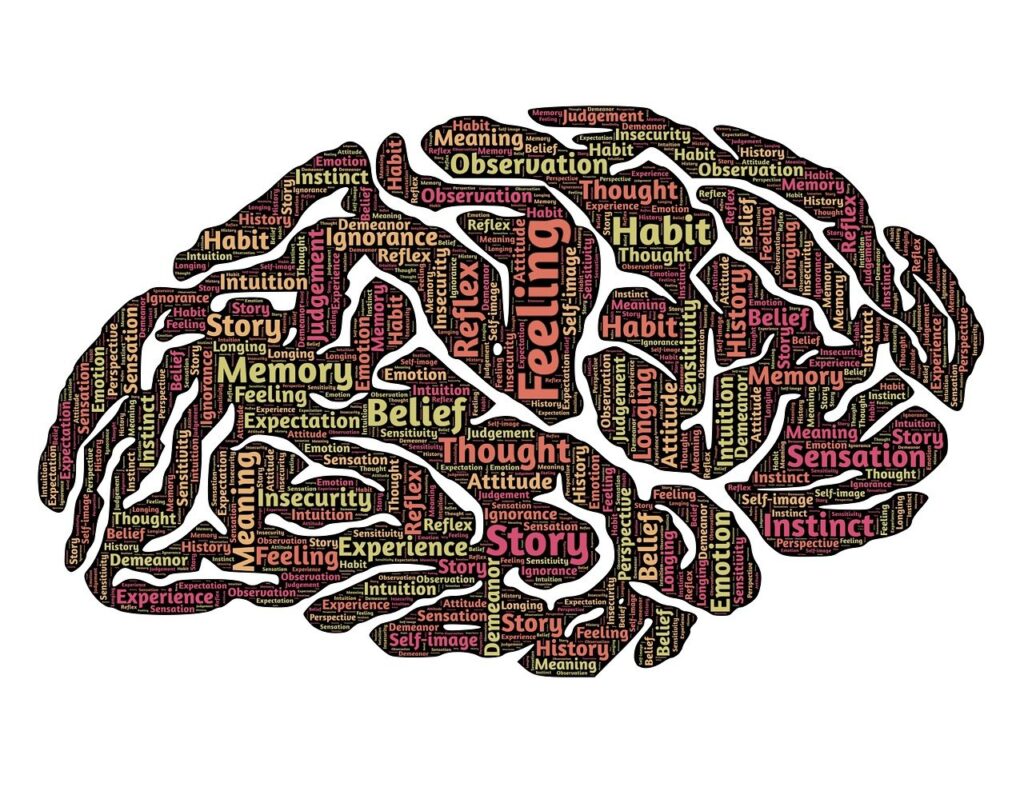15 Different Types Of Mindsets For Great Results in Life and Business

When you buy something through one of the links on our site, we may earn an affiliate commission.
Different types of mindsets have two opposing extremes.
At one end of the spectrum, you'll achieve consistent growth. And at the other end, you'll make little progress or feel completely stuck.
In this article, we'll explore 15 different types of mindsets that, when developed, help you succeed in every area of your life.
So, if you want to significantly improve your health, wealth, or relationships, these mindsets will give you the power to do so.
Let's get started.
Contents
What is a Mindset?
A mindset is a set of subconscious thinking patterns that shape the way we perceive reality.

Our beliefs and assumptions are what cause these thinking patterns.
Those beliefs and assumptions can influence our behavior in positive or negative ways.
For example, John is a bright and creative individual but struggles with self-doubt and a belief he isn't smart.
Instead of studying design in college, he gets a job he knows he can't fail at. He avoids learning a skill he is passionate about because his current mindset doesn't support it.
This is what's known as a fixed mindset. John's way of thinking prevents him from believing in himself and his ability to learn new skills.
The opposite is a growth mindset, where individuals believe that their intelligence isn't fixed. From this perspective, success comes from effort and learning from mistakes.
Why is Mindset so Important?
Mindset shapes how we respond to setbacks such as failed startups or a rocky relationship.
Thus, simply by the way we think can direct our lives in opposite directions.
Instead of failing in business until one succeeds, many of us won't even try.
In the field of Neuro-Linguistic Programming (NLP), one of the presuppositions states:
"There is no failure, only feedback."
However, those with a fixed mindset will avoid failure at all costs because they see it as a reflection of their insecurity.
It's important to know that everyone has a fixed mindset in certain areas. But, the different types of mindsets work on a spectrum.
One person could have a strong positive mindset but a poor money mindset. Another might be a millionaire but carry a ton of fear and worry around with them.
So, just because someone looks accomplished doesn't mean they are happy and fulfilled. It's all about balance and perspective.
15 Different Types of Mindsets for Consistent Growth
Here are 15 different types of mindsets that, when reflected on, can significantly transform your life and work.
1. Growth Mindset
The growth mindset is possibly the queen of them all. That's because each mindset either empowers growth or keeps a person fixed or stuck.

Specifically, people with a growth mindset are constant learners. They believe they can improve their intelligence through effort and feedback.
The study of Neuroplasticity reflects this idea. This is where the brain grows new neural connections that change the way we think and behave.
The opposite of the growth mindset is the fixed mindset. These individuals think they have to get everything perfect the first time. They're non-learners because they don't believe they can change.
"As soon as children become able to evaluate themselves, some of them become afraid of challenges. They become afraid of not being smart."
Carol Dweck, Mindset
2. Positive Mindset
People with a positive mindset have an optimistic outlook on life, seeing the good in any situation.
The hallmark of this mindset is trusting oneself and others. It's not about being ignorant of life's struggles but the ability to see the positive side of negative situations.
Even when they're faced with adversity, they remain hopeful, believing a positive outcome must be possible.
The opposite is a negative mindset. It's characterized by a pessimistic outlook and focusing on the worst-case scenario.
A pessimistic mindset is often a learned response, common in people with learned helplessness. This condition is best described in the story about the baby elephant tied to a peg in the ground.
The baby elephant tries to break free but isn't strong enough and eventually gives up.
Even when the elephant is older and stronger, he remains stuck because he has learned from a young age that it isn't possible to break free.
3. Money Mindset
The money mindset centers around the accumulation of wealth through assets. People with this mindset make strategic investments and focus on spending money wisely.

In the book Rich Dad, Poor Dad, author Robert Kiyosaki explains this mindset well. Kiyosaki explores the difference between rich people and poor people.
In a nutshell, rich people make their money work for them and acquire assets. Whereas the poor and middle-class work for money and acquire liabilities they think are assets.
The opposite of a money mindset is financial neglect. People with this mindset ignore financial management, overspend, and fail to seek ways to increase their income.
4. Abundance Mindset
People with an abundance mindset have a belief that there is always enough to go around.
This includes things such as health, love, money, time, and focus. Adopting this mindset means recognizing these aspects arise internally, not externally.
They don't rely on a relationship to feel love or need a million dollars to feel rich. Instead, they focus on what they do have and feel a sense of prosperity coming from within.
Those with the opposite mindset have a scarcity mentality, always focusing on what they lack.
A scarcity mindset is usually caused by fear of not having enough or being enough.
5. Gratitude Mindset
The gratitude mindset is closely related to the abundance mindset. People with this mental attitude are appreciative of what they already have instead of worrying about what's missing.

To adopt this mindset, try to stay grounded and realize that everything happens in the present moment.
It's fine to dream about a better life, but the focus is on loving the process instead of escaping the pain of dissatisfaction.
The opposite of a gratitude mindset is the sense of never feeling satisfied with oneself or their abilities. They often have high expectations, which can leave them feeling ungrateful and unfulfilled.
6. Success Mindset
The success mindset and growth mindset are closely related. Both rely on self-confidence, grit, and purpose.
People with a success mindset believe in themselves, are resilient when facing challenges, and are purpose-driven when pursuing goals.
The opposite is a mindset of self-doubt and a fear of failure. These people are risk-averse and avoid making mistakes. They prefer to stay comfortable in the known instead of exploring the possibility of achievement.
7. Confident Mindset
A confident mindset is closely tied to the mindset of success. It emphasizes self-assurance and a belief in one's abilities.

People with this mindset recognize their flaws but place their attention on their strengths. They don't walk around with a pumped-up chest or look down at people.
They simply see the value in the uniqueness of themselves and others.
The opposite of a confident mindset is a sense of insecurity. They place all the attention on their perceived flaws or overcompensate when they feel a need for acceptance.
8. Entrepreneur Mindset
The entrepreneur mindset is the problem-solver and is characterized by innovation and growth.
Leadership is also central to the entrepreneurial mindset, preferring to serve others and a desire to leave a legacy.
The entrepreneur sees problems as opportunities to start a business that offers a solution and provides value.
At the other end of this mindset is the employee mindset or follower mindset. These types of people have no desire to start a business, often due to fear or perceived security a job gives them.
9. Dreamer Mindset
Those with the dreamer mindset are the visionaries and change-makers of the world.
Some famous dreamers include Elon Musk, Steve Jobs, and Walt Disney. They're big-picture thinkers who push the boundaries of what's possible.
People with the dreamer mindset use an inspiring vision to find people to help them achieve audacious goals.
The opposite of a dreamer mindset is a closed-minded mindset. These people will avoid dreaming big and only focus on rational and pragmatic endeavors.
10. Creative Mindset
The creative mindset is closely linked to the dreamer mindset. These folks are fueled by curiosity and self-expression.

They can be innovative like entrepreneurs and often get lost in their work and the flow state. Think painters, writers, designers, musicians, and photographers.
The downside to the creative mindset is a lack of productivity and being their own worst critics.
The thinker mindset is the other end of the spectrum. These are the left-brained, analytical folk who often struggle with analysis paralysis and relating to others.
11. Challenge Mindset
The challenge mindset is held by people who not only embrace challenging goals but seek them out. Think athletes, bodybuilders, or tough mudder participants.
Additionally, these are the type of people who refuse to be knocked down by fear and adversity.
They have resilience and are motivated by pain. People with the opposite mindset see challenges as threats.
12. Mindful Mindset
A mindful mindset involves being reflective, present, and patient. People with this mindset value self-awareness and introspection.

They recognize that everything exists in the present moment and avoid getting lost in past challenges or too involved with a possible future.
The opposite mindset refers to people stuck in the past or fearful of the future. It's defined by impulsivity and a lack of personal growth.
13. Productive Mindset
People with a productive mindset value efficiency and time management. They are masters of goal setting, organizational skills, and focus.
Entrepreneurs also adopt this mindset, as well as those with the success mindset. These people value their time and recognize the importance of consistency and building healthy habits.
The opposite mindset exhibits procrastination and disorganized thinking, hindering progress and missing out on opportunities.
14. Social Mindset
The social mindset thrives on collaboration and building close relationships. People with this mindset don't see competition. Instead, they acknowledge the value of teamwork.

Some good examples of people with this mindset are Gary Vaynerchuk, Alex Hormozi, and Marie Forleo.
Those with the opposite mindset are individualists who avoid the spotlight and social contact. This can lead to isolation and may hinder personal development.
15. Purposeful Mindset
A purposeful mindset is held by people who choose projects congruent with their values and beliefs.
These people are driven by meaning and authentic goal alignment. They prefer to work on fewer projects they are passionate about that they can commit to wholeheartedly.
The opposing side to the purposeful mindset can be described as aimlessness. People with this mindset may struggle with shiny object syndrome or lack of follow-through.
How to Start Shifting Your Mindset
Shifting your mindset starts internally. You'll begin to ask yourself different questions, which will influence new behaviors.
This will set the foundation for a new, more empowering mindset.
Here are some steps to get you started.
- Question your beliefs. Just by reading this article, you will have become aware of some potential beliefs that are holding you back.
- Change your self-talk. The way you speak to yourself is a reflection of what you believe if possible. Recognize the language that limits you and change it to more inspiring phrases.
- Embrace fear. Realize that fear is part of the journey. Avoiding fear will only keep you stuck in your comfort zone.
- Get support. The quote, "You are a sum of the 5 people you hang around with most," is very true. If you want rapid growth, make friends with those who have adopted the mindset you want.
- Take action. To create a new mindset, we have to do things differently. Thinking and planning will not bring about results. Whereas taking consistent action will restructure the way you think and form the beliefs required to achieve your goals.
Additional Resources on Mindset
To learn more about mindset, these resources provide a ton of value:
- MindsetKit.org
- Mindset: The New Psychology of Success by Carol S. Dweck
- The Growth Mindset (free Coursera course)
- Growth Mindset: The Key to Confidence, Impact & Fulfillment (Udemy)
Different Types of Mindsets in Conclusion
Different types of mindsets can be categorized as fixed or empowering, reflecting the diverse ways our minds operate. Simply exploring them will help raise your awareness of ways you get stuck.
Which one in this list resonated with you most? And which ones have opened your eyes?
If you want to dive a little deeper, check out our article success mindset, which will widen your understanding further.
Want to learn step-by-step how I built my Niche Site Empire up to a full-time income?
Yes! I Love to Learn
Learn How I Built My Niche Site Empire to a Full-time Income
- How to Pick the Right Keywords at the START, and avoid the losers
- How to Scale and Outsource 90% of the Work, Allowing Your Empire to GROW Without You
- How to Build a Site That Gets REAL TRAFFIC FROM GOOGLE (every. single. day.)
- Subscribe to the Niche Pursuits Newsletter delivered with value 3X per week
My top recommendations
















